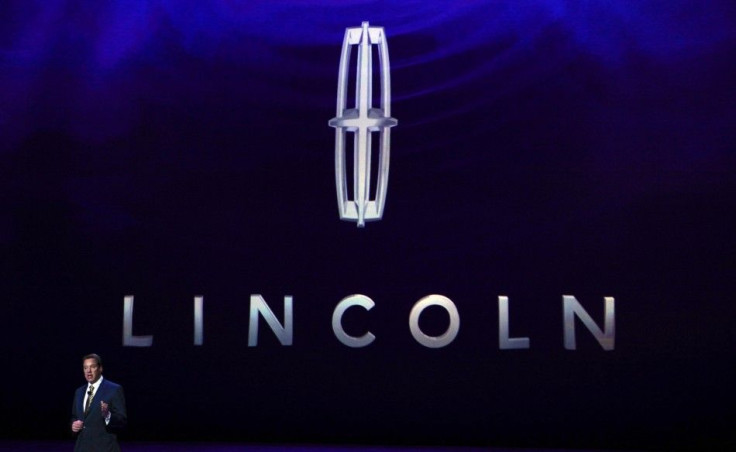Lincoln vs. Lexus: The War is On

Ford Motor Company will invest $1 billion in new vehicles to invigorate its struggling luxury Lincoln brand, meaning the war to be fought over the next several years has officially been declared.
It's Lincoln vs. Lexus.
Infusing lagging Lincoln, which has less than one percent of the U.S. automotive market, with $1 billion is a bold move for resurgent Ford (NYSE: F) and CEO Alan Mulally. Lincoln has sold fewer than 35,000 vehicles in the first five months of this year and some industry watchers are claiming it's all but dead. But Ford thinks it can take on the likes of Lexus with Lincoln and win.
Toyota's luxury brand has held the top position in U.S. luxury auto sales for 11 consecutive years, selling more than 229,000 units in 2010. Toyota (NSYE: TM) vehicle sales suffered across all its brands in 2010, however, due to massive recalls and federal government hearings over those recalls.
After betting the entire Ford company, down to its trademark Blue Oval logo, for a $20 billion loan several years ago on the fact that Ford would make a comeback, and winning big with one of the most dramatic corporate turnarounds in global history, Mulally is making a similar bet that he can not only bring Lincoln back to viability, but also successfully take on Toyota's leading Lexus brand and win.
Mulally and members of Ford's leadership team met this week in Dearborn, Michigan, where the company is headquartered, with leading Lincoln dealers from around the country, telling them of the $1 billion investment for new Lincoln vehicles and plan to turn the brand completely around with product by 2014. The meeting was just in time for many Lincoln dealers, who have waited patiently as sales have fallen due to stagnant product while Ford's namesake brand has seen its new and freshened products fly from dealer showrooms.
Last year Lincoln dealers were urged to invigorate their showrooms with costly redesigns in anticipation of Lincoln's revitalized product lineup, but to date they've just spent the money, in some instances as much as $1 million, while waiting on the new vehicles. Mulally explained to the Lincoln dealers he understood their anxiety in the lean times when many are questioning the brand's long-term viability, but that getting Ford's signature Blue Oval brand on back track had to be the first priority.
Now, he said, is the time to invest in Lincoln so the automotive brand can challenge Lexus to become the leading luxury brand in the U.S. A Lincoln spokesperson confirmed the company was "fully comitted" to making the brand world-class competitive with "compelling vehicles" and an "exceptional consumer experience."
Doubters that Ford can win the war against Lexus much less save its struggling Lincoln brand have already lined up. Lincoln is on track to sell fewer than 80,000 vehicles this year, numbers that ordinarily would not be enough to keep a brand alive. Even General Motors Chief Executive Officer Dan Akerson said recently Lincoln doesn't have a chance.
"You might as well spinkle holy water," he said. "It's over."
Betting against Ford might not be a good idea based on history, however. The company was all but written off when Mulally took over the leadership role in 2006 for Bill Ford Jr., who settled back into his previous role as company chairman. Mulally was an engineer by training who was hired from Boeing.
Ford was broke and bleeding cash, losing $30 billion between 2006 and 2008, and steadily losing market share in the U.S and abroad. But Mulally bet the company's future, investing the money in product, and convinced employees to rally around the One Ford mission. Now, the rest is history as Ford has earned record profits, at more than $9 billion the past two years, and become a winner in the eyes of consumers, employees and Wall Street.
With bloated earnings and more than $20 billion of cash, Mulally is attempting to seize upon the momentum by conquering new markets, including Asia where investment is being stepped up, and with the Lincoln brand. Gone are luxury brands Ford once owned including Jaguar, Land Rover, Aston Martin and Volvo. Mulally sold those off in the restructuring movement to focus on Ford's core strengths. And, in 2010 Ford officially killed its Mercury brand to focus on Lincoln. That's when Lincoln dealers were asked to invest in their dealerships, to get ready for the product infusion.
Mulally told them this week it's now on the way. Ford has the cash to spend for new Lincoln product and he told them he's committed to making it happen.
The benchmark for Lincoln is obvious, of course, since Toyota is Ford's leading competitor beyond GM and Lexus is the luxury brand leader in the U.S. Ford isn't planning to invest $1 billion for Lincoln to continue being a laggard. Mulally and Ford will be aiming for a winner, which means directly taking on Lexus, and other U.S. luxury leaders BMW and Mercedes-Benz.
Despite its long leadership position, Lexus is prone to attack. Following Toyota's recall issues in 2010 Toyota had to increase Lexus incentive spending to keep the luxury brand as sales leader. In the fourth quarter last year, for example, Toyota doubled incentives. The chink in the armour of Toyota and Lexus, however small, couples with Ford's resurgence in brand power and overall market prowess to yield decent odds in Lincoln's now-waged war against Lexus.
Mulally certainly likes the chances. Speaking earlier this year with a group of reporters Ford's CEO said he wants to get Lincoln to a competitive level with Lexus, as well as Mercedes-Benz and BMW.
"This is an opportunity for us," he said.
© Copyright IBTimes 2024. All rights reserved.











